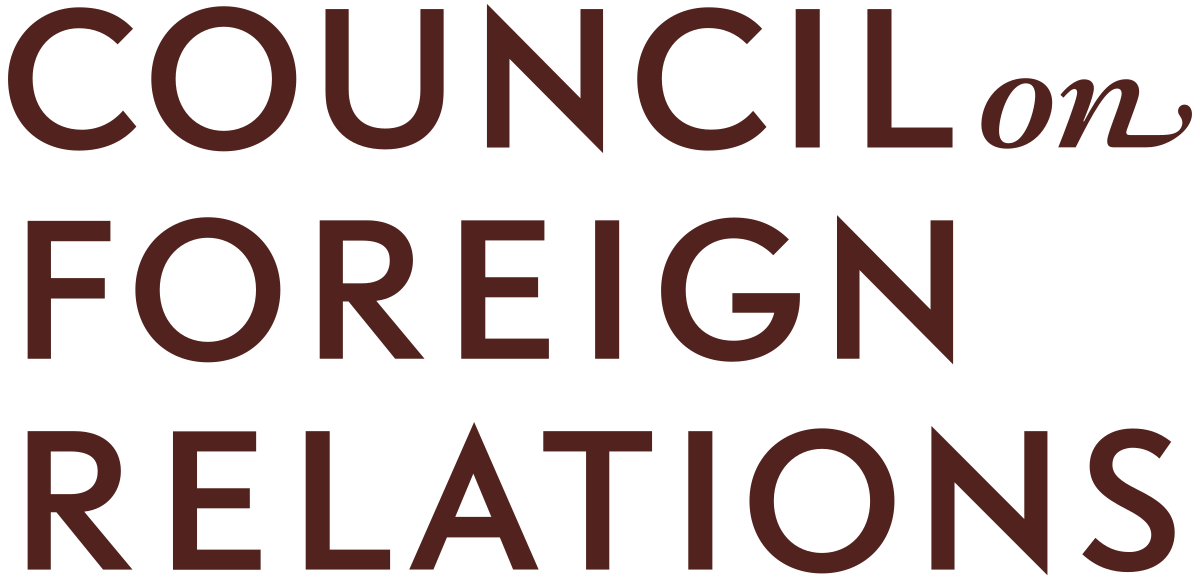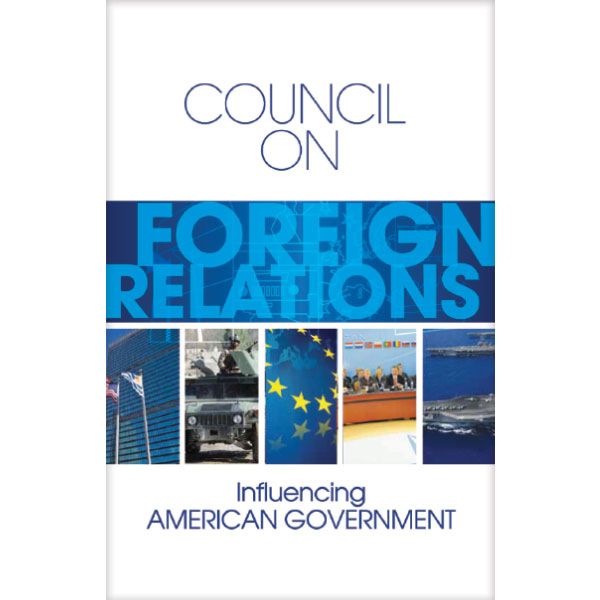Council On Foreign Relations: Understanding Its Role And Influence In Global Affairs
Mar 20 2025
The Council on Foreign Relations (CFR) stands as one of the most influential think tanks in the world of international relations. Established in 1921, it has played a pivotal role in shaping global policies and fostering dialogue among policymakers, scholars, and business leaders. Its impact on U.S. foreign policy and global governance cannot be overstated, making it a crucial subject of study for anyone interested in international affairs.
The CFR's mission is to provide nonpartisan research and analysis on critical issues affecting the global community. By hosting events, publishing reports, and engaging with key decision-makers, the organization aims to bridge gaps between nations and promote cooperation. Its members include some of the most prominent figures in politics, academia, and industry, underscoring its significance in shaping the global agenda.
This article will delve into the history, structure, activities, and controversies surrounding the Council on Foreign Relations. We will explore how this organization influences global politics and why understanding its role is essential for anyone interested in international relations. Let us begin by examining its origins and evolution over the years.
Read also:Wasmo Telegram Link 2024 Qoraal Your Ultimate Guide To Exploring The Latest Updates
Table of Contents
- History of the Council on Foreign Relations
- Mission and Objectives
- Structure and Membership
- Key Activities and Programs
- Publications and Research
- Influence on U.S. Foreign Policy
- Global Impact and Partnerships
- Criticisms and Controversies
- Future Directions and Challenges
- Conclusion
History of the Council on Foreign Relations
The Council on Foreign Relations was founded in 1921 in New York City, following the conclusion of World War I. It emerged as a response to the need for informed discussions about international relations and global governance. Initially, it focused on analyzing the Treaty of Versailles and its implications for world peace. Over the decades, the CFR has expanded its scope to cover a wide range of topics, from economic policy to cybersecurity.
During the Cold War era, the CFR played a significant role in shaping U.S. foreign policy by bringing together experts from various fields. Its semi-annual publication, Foreign Affairs, became a go-to resource for policymakers and academics alike. Today, the organization continues to evolve, adapting to the ever-changing landscape of global politics.
Founding Members and Early Days
The founding members of the Council on Foreign Relations included prominent figures such as Elihu Root, a former U.S. Secretary of State, and Hamilton Fish Armstrong, the first editor of Foreign Affairs. These individuals recognized the importance of fostering dialogue between nations and promoting understanding through research and analysis.
- Elihu Root: A Nobel Peace Prize laureate and advocate for international cooperation.
- Hamilton Fish Armstrong: A journalist and scholar who played a key role in establishing the organization's intellectual foundation.
Mission and Objectives
The mission of the Council on Foreign Relations is to promote understanding of international affairs and U.S. foreign policy. It achieves this through a combination of research, publications, and events that bring together diverse perspectives. By engaging with policymakers, scholars, and business leaders, the CFR aims to foster informed decision-making at both national and international levels.
Core Objectives
The core objectives of the Council on Foreign Relations include:
- Providing nonpartisan analysis on critical global issues.
- Facilitating dialogue between key stakeholders in international relations.
- Training the next generation of leaders in foreign policy.
Through these objectives, the CFR seeks to enhance the quality of public discourse on international affairs and contribute to the development of effective policies.
Read also:Who Is Jim Gaffigans Wife A Comprehensive Look At Jeannie Gaffigan
Structure and Membership
The Council on Foreign Relations operates as a membership-based organization, with a diverse group of individuals from various sectors. Its membership includes government officials, business leaders, academics, and journalists, among others. This diversity ensures that the organization's discussions and analyses reflect a wide range of perspectives.
Membership Categories
Membership in the CFR is divided into several categories, each with its own requirements and benefits. These categories include:
- Corporate Members: Companies that support the organization's mission and participate in its activities.
- Individual Members: Professionals from various fields who contribute to the CFR's intellectual capital.
- Young Members: Emerging leaders under the age of 36 who are committed to international affairs.
This structure allows the CFR to engage with a broad audience and leverage the expertise of its members in addressing global challenges.
Key Activities and Programs
The Council on Foreign Relations organizes a wide range of activities and programs to fulfill its mission. These include conferences, roundtable discussions, and workshops that bring together experts from around the world. The organization also hosts events featuring prominent speakers, providing members with unique opportunities to engage with key decision-makers.
Notable Programs
Some of the notable programs offered by the CFR include:
- International Affairs Fellowship: A program designed to train the next generation of foreign policy leaders.
- Corporate Program: A platform for companies to engage with policymakers and thought leaders.
- CFR Campus: An initiative aimed at educating students and educators about international relations.
These programs reflect the organization's commitment to fostering dialogue and promoting understanding in the field of global affairs.
Publications and Research
The Council on Foreign Relations is renowned for its publications, which provide in-depth analysis on a wide range of topics. Its flagship publication, Foreign Affairs, is one of the most respected journals in the field of international relations. In addition to Foreign Affairs, the CFR produces numerous reports, briefs, and working papers that address pressing global issues.
Research Areas
The research conducted by the CFR spans a variety of areas, including:
- Economic Policy: Analyzing global economic trends and their implications for national economies.
- Cybersecurity: Exploring the challenges and opportunities of digital transformation in international relations.
- Climate Change: Addressing the environmental challenges facing the global community.
Through its publications and research, the CFR provides valuable insights that inform policy decisions and shape public discourse.
Influence on U.S. Foreign Policy
The Council on Foreign Relations has a significant influence on U.S. foreign policy, thanks to its close ties with policymakers and thought leaders. Many of its members have held high-level positions in government, including Secretary of State and National Security Advisor. This proximity to power allows the CFR to shape the conversation around key issues and contribute to the development of effective policies.
Examples of Influence
Some examples of the CFR's influence on U.S. foreign policy include:
- Shaping the U.S. response to the Cold War through its analysis and recommendations.
- Informing the debate on climate change and global environmental policy.
- Providing guidance on economic policy during times of financial crisis.
By engaging with policymakers and offering expert analysis, the CFR plays a crucial role in shaping the direction of U.S. foreign policy.
Global Impact and Partnerships
The Council on Foreign Relations extends its influence beyond the United States through partnerships with organizations around the world. These collaborations enable the CFR to address global challenges with a truly international perspective, bringing together diverse voices and expertise.
Key Partnerships
Some of the key partnerships maintained by the CFR include:
- Chatham House: A collaboration with the Royal Institute of International Affairs in the United Kingdom.
- Asia Society: A partnership focused on addressing issues in the Asia-Pacific region.
- International Institute for Strategic Studies: A collaboration aimed at enhancing global security and stability.
Through these partnerships, the CFR amplifies its impact and contributes to the development of effective solutions to global challenges.
Criticisms and Controversies
Despite its many achievements, the Council on Foreign Relations has faced criticism and controversy over the years. Some critics accuse the organization of being too elitist, arguing that its membership and activities are inaccessible to the general public. Others claim that the CFR exerts undue influence on U.S. foreign policy, potentially undermining democratic processes.
Addressing Criticisms
The CFR has taken steps to address these criticisms by increasing transparency and expanding its outreach efforts. For example, the organization has launched initiatives aimed at engaging with a broader audience, such as CFR Campus and the David Rockefeller Studies Program. These efforts demonstrate the CFR's commitment to fostering inclusive dialogue and promoting understanding in the field of international relations.
Future Directions and Challenges
Looking ahead, the Council on Foreign Relations faces several challenges as it seeks to maintain its influence and relevance in an increasingly complex global landscape. These challenges include adapting to new technologies, addressing emerging global issues, and ensuring that its activities remain accessible to a diverse audience.
Potential Solutions
To address these challenges, the CFR could consider the following strategies:
- Investing in digital platforms to enhance its reach and engagement with global audiences.
- Expanding its research agenda to cover emerging issues such as artificial intelligence and biotechnology.
- Continuing to diversify its membership and activities to ensure inclusivity and accessibility.
By embracing these strategies, the CFR can continue to play a leading role in shaping the future of global affairs.
Conclusion
The Council on Foreign Relations is a vital institution in the field of international relations, providing valuable insights and fostering dialogue among key stakeholders. Through its research, publications, and programs, the CFR contributes to the development of effective policies and promotes understanding in an increasingly interconnected world.
We encourage readers to explore the resources provided by the Council on Foreign Relations and engage with its activities. By doing so, you can deepen your understanding of global affairs and contribute to the ongoing conversation about the future of international relations. Don't forget to share this article with others who may be interested in learning more about the CFR and its impact on global politics.


